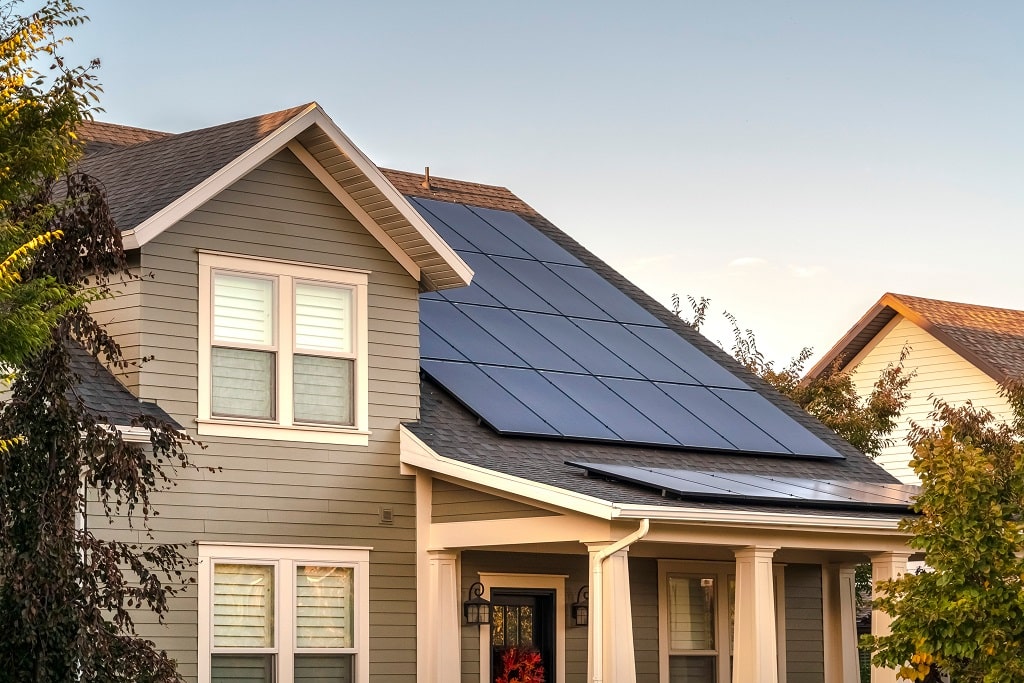


Solar energy has gained significant popularity in recent years as an eco-friendly and cost-effective alternative to traditional energy sources. As a result, many homeowners in America are considering installing solar panels on their roofs to harness the power of the sun. If you’re thinking about making the switch to solar, here are some essential things to know before installing a solar roof.
Assess your roof’s suitability: When it comes to roofing in South Florida, it’s crucial to determine if your roof is suitable for solar panels. Consider factors such as the age, condition, and orientation of your roof. Ideally, your roof should have a lifespan of at least 20 years remaining and be in good structural condition to support the weight of the solar panels. Additionally, a south-facing or west-facing roof with minimal shading will maximize the efficiency of your solar system.
Understand the costs: While a solar panel roof replacement can save you money in the long run, it’s important to understand the upfront costs associated with installation. The total cost will depend on factors such as the size of your system, the complexity of the installation, and your location. However, various incentives, such as federal and state tax credits, rebates, and net metering programs, can significantly offset the initial investment. Make sure to research and understand the financial incentives available in your area.
Find a reputable installer: Choosing the right solar installer is crucial for a successful solar roof installation. Look for companies with a proven track record and positive customer reviews. Obtain multiple quotes from different installers to compare prices and services. A reputable installer will assess your energy needs, provide an accurate estimate, and guide you through the entire installation process (even if it contains special circumstances like solar panels on a metal roof!).
Understand your energy needs: To determine the appropriate size of the solar aspect of your new roof with solar panels, it’s important to understand your household’s energy needs. Review your past energy bills to get an idea of your average electricity consumption. Consider any future changes that may affect your energy usage, such as the addition of electric vehicles or home expansions. A properly sized solar system will optimize your energy savings and reduce reliance on the grid. Despite popular belief, solar systems aren’t one-size-fits-all.
Consider your local regulations: Solar energy regulations can vary by state and local jurisdiction. Before installing a solar roof, familiarize yourself with the relevant regulations, permits, and interconnection requirements in your area. Some homeowners’ associations (HOAs) may have specific guidelines or restrictions regarding solar panel installations. Ensure you comply with all necessary regulations and obtain any required permits before proceeding – don’t get yourself into trouble.
Evaluate warranties and maintenance: Solar panels are durable and require minimal maintenance. Yet, it’s essential to understand the warranties offered by the manufacturer and installer. Most solar panels come with a performance warranty that guarantees a certain level of energy production over a specific period. Furthermore, inquire about the roof maintenance requirements and whether the installer offers any ongoing monitoring services to ensure optimal system performance.
Understand the impact on your home’s value: Installing a solar roof can increase your home’s value and appeal to potential buyers. According to studies, homes with solar panels tend to sell faster and at a higher price. However, it’s important to consider the potential impact on your property’s aesthetic appeal. Solar panels are sleeker and more visually appealing than ever, but it’s worth discussing the installation’s aesthetics with your chosen installer to ensure a design that complements your home’s architecture.
By considering these factors, you’ll be better prepared to make an informed decision about installing a solar roof. Solar energy offers numerous benefits, from reducing your carbon footprint to saving money on energy bills. With careful planning and the right installer, you can harness the power of the sun and enjoy the advantages of renewable energy for years to come. Get started today!